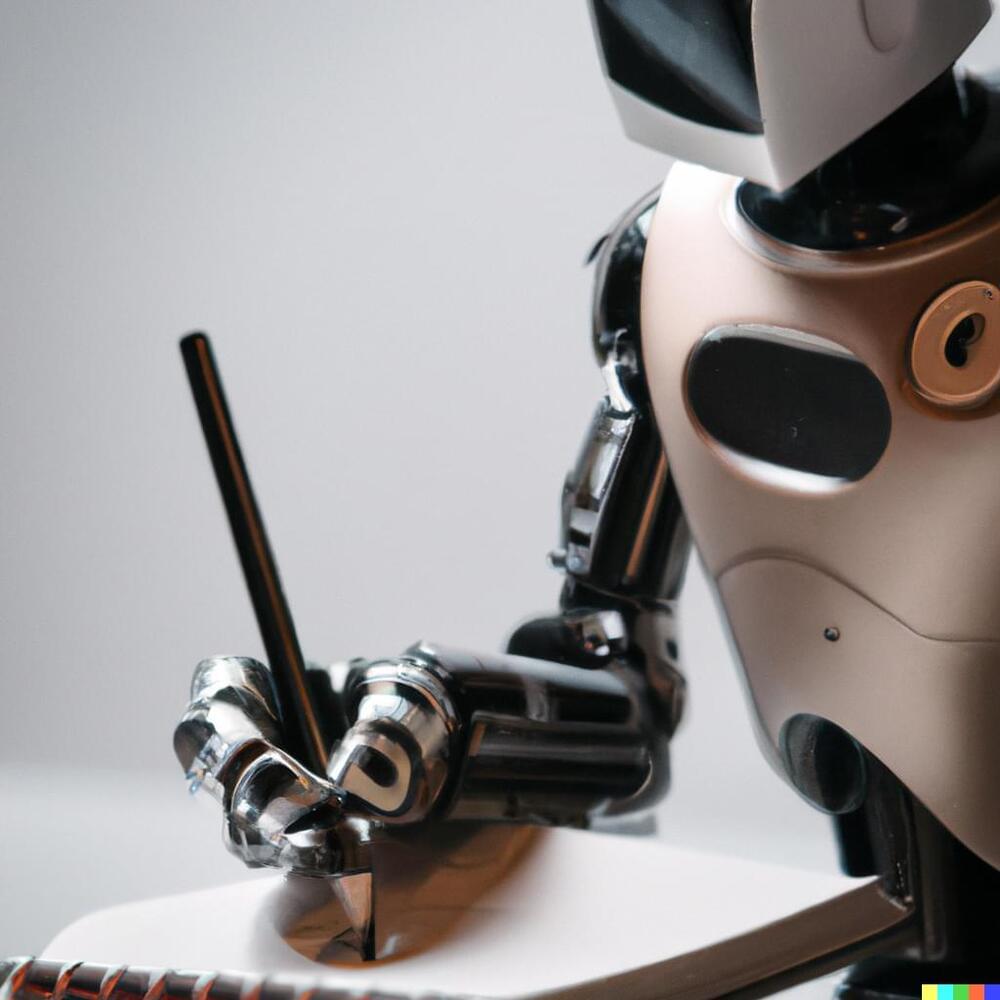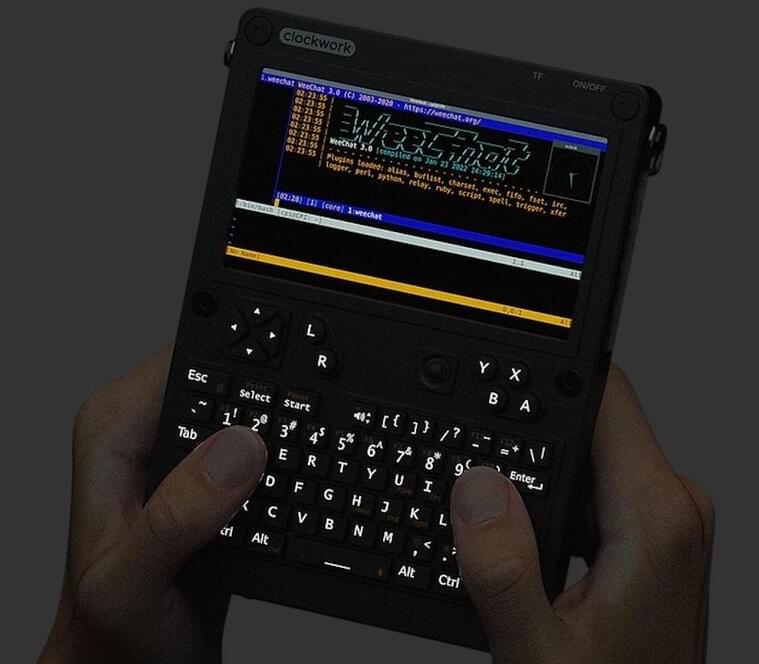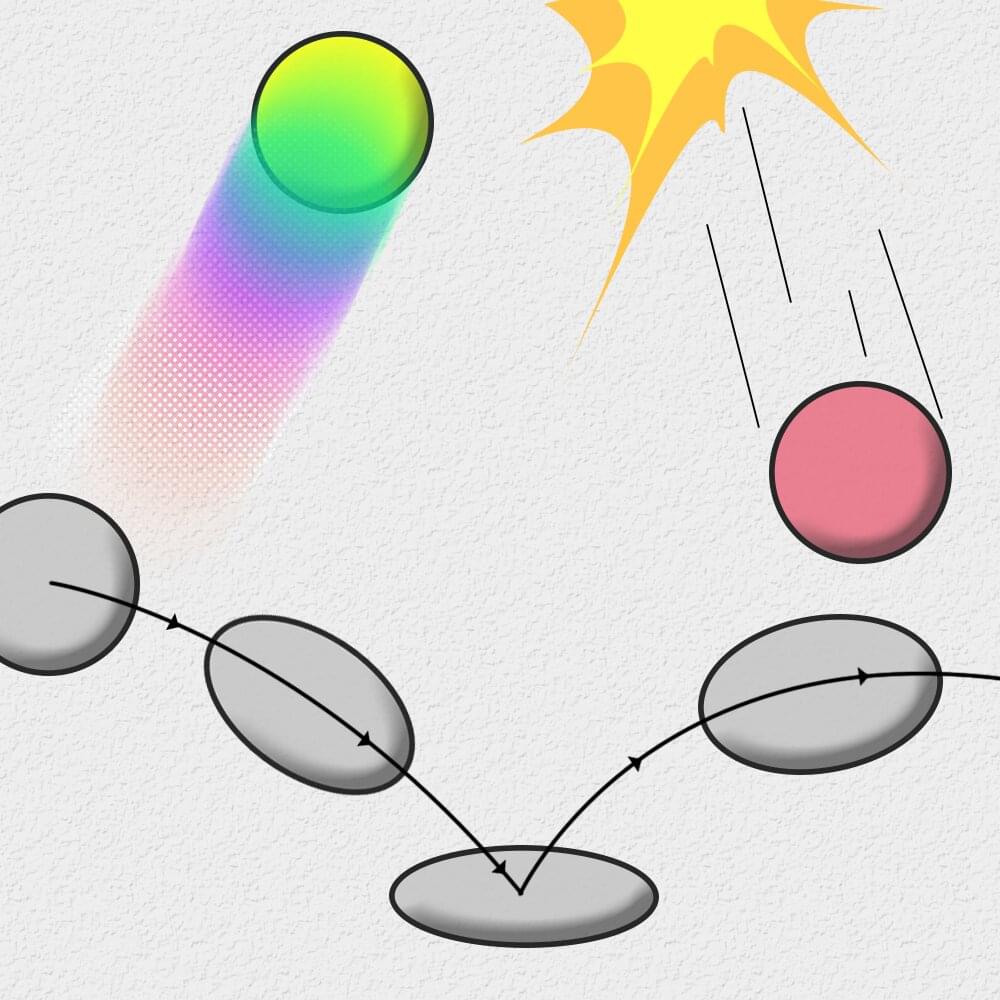Posthumanuniversity.com Now streaming https://ditto.fm/hypermodern-magic
Videos, books, e-books, games software, nu music.
Posthumanuniversity.com Now streaming https://ditto.fm/hypermodern-magic
Videos, books, e-books, games software, nu music.
Free AI software is primed to strip away the control of studios and actors who appears in films.
EXCERPT: ‘Prophets of Science Fiction’ hosted by Ridley Scott posits the science-fiction imaginings of the writers of the past are now becoming the science realities of our day. In this episode, Arthur C Clarke presents his 3 laws of prediction.

The designer has equipped the headset with explosive charges.
Palmer Luckey, the guy who co-founded the virtual reality (VR) headset-making company Oculus, has now made another VR headset that can kill you if you die in an online game. Luckey’s company was acquired by Facebook, now Meta, and his product is now a critical component of the metaverse that Mark Zuckerberg plans to build the company around.
At the outset, it might seem that Zuckerberg did the right thing by acquiring Oculus. Otherwise, we would not really know what sort of products they would bring to the market.
Palmer Luckey.
However, in a blog post, Luckey has given us some clues as to what inspired him to make the VR headsets in the first place and what continues to inspire him even today, and it all boils down to an anime game called Sword Art Online (SOA).

A team of scientists from the University of Sciences and Technology of China has proposed a bold solution for the “measurement problem” in quantum mechanics, suggesting the eventual outcome for states of existence is determined by a “game” between the observer and nature.
For over a century, the quantum realm has imposed an abundance of bizarre obstacles along the road to understanding universal existence.
In the microscopic world of atoms and subatomic particles, nature demonstrates unparalleled strangeness, becoming unpredictable and operating in contrast to how it behaves at the macroscopic scale defined by classical physics.


There have been various papers and articles recently that discuss the ‘personality’ of GPT-3 and seek to identify its biases and perspectives. What I’m writing about today is the opposite of that. Rather than probe GPT-3 for its identity, some researchers are what is possible when GPT-3 is prompted to assume a specific identity and respond as a proxy for that identity, with all its biases.
It turns out that it can simulate another human’s perspective with sufficient fidelity that it can act as a proxy for a diverse population of humans in social experiments and surveys. This is accomplished by inventing a population of participants described by a backstory or a set of attributes including things like gender, race, income, occupation, age, political identity, etc. For each virtual person a prompt (or prompt chain) is created that establishes the identity and asks GPT-3 to effectively act as that person in a response to a question or scenario.
One example is the study “Using Large Language Models to Simulate Multiple Humans” in which four different social experiments are recreated with virtual subjects modeled to mirror the real study’s participants. The experiments were the Ultimatum Game, garden path sentences, risk aversion, and the Milgram Shock experiments. The ultimatum game is a game theory scenario as follows: There is a sum of money and two subjects, let’s say Bob and Carol. Bob must offer Carol a portion of the money. If Carol accepts, then she gets that amount of money and Bob gets the rest. If instead the offer is rejected, neither get any money.
The recipe for the Imaginarium is locked behind the ancient doors. Three brave hunters are sent on a mission to get the three mysterious scrolls needed to open them… but somebody doesn’t like it at all.
Official Music Video for “Imaginarium” by Fish Basket.
But this track on Bandcamp: https://fishbasket.bandcamp.com/track/imaginarium.
This video was classically shot and modified using artificial intelligence.
Shot and edited by Kamil Arbuz (Arbuz Hyper Film) — https://www.facebook.com/arbuzhyperfilm @ARBUZ HYPER FILM
Directed by: Fish Basket and Kamil Arbuz.
Produced by Kamil Arbuz and Piotr Wicher.
Ai FX: Piotr Wicher.
Sound FX: Kamil Arbuz.
Screenplay: Fish Basket.
Additional editing: Piotr Wicher.
Costumes: Fish Basket.
Music recorded in Rombalnia by Adam Gajewski and Piotr Wicher.
Music Production: Piotr Wicher.
Mix and mastering: Nebula Studio.
Cast:

We live in very interesting times, especially if you happen to be a tinkerer, hobbyist, or what is commonly called a “maker” these days. From affordable palm-sized computer boards like the Raspberry Pi to the almost magical 3D printers, it has never been easier to bring ideas to life or, at the very least, prototype designs quickly before they hit final production. Not everyone might have access to these parts and tools, though, but those same things have also made it easier to create and sell products that bigger companies would never dare make. Those include niche yet popular designs, like this quirky pocket computer kit that you can assemble on your own to become not just a portable game emulator but a real computer you could use for more serious business, like even developing your own retro-style game on the go.
Designer: Clockwork.

Visual effects (VFX) can help to make videogames more engaging and immersive for players. However, they are often also designed to support players, for instance, by pointing them to specific locations or highlighting helpful game features.
Researchers at University of California, Santa Cruz (UCSC) have recently carried out a study investigating the ways in which VFX can help videogame players to make sense of the virtual worlds and environments they are navigating. Their paper, pre-published on arXiv and presented at the IEEE VIS Workshop on Visualization for the Digital Humanities (VIS4DH), could guide the future development of both videogames and data visualization tools.
“Our study mostly builds upon our engagement with two distinct communities: the data visualization research and the videogame communities,” Henry Zhou, one of the researchers who carried out the study, told TechXplore. “The Computational Media department at UCSC has a mixture of scholars interested in both media artifacts. The paper originated from my colleague Angus G. Forbes’ observation of a general minimalist aesthetic as practicing wisdom in the data visualization research community, especially when it comes to visual effects (VFX) and animation.”